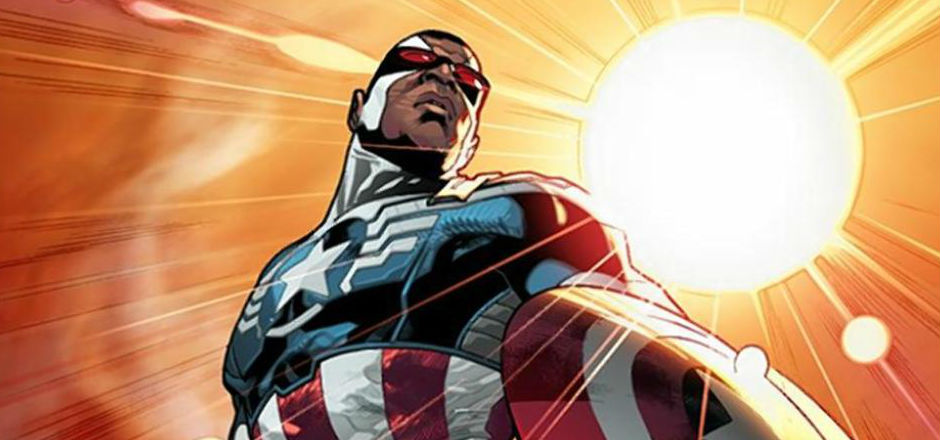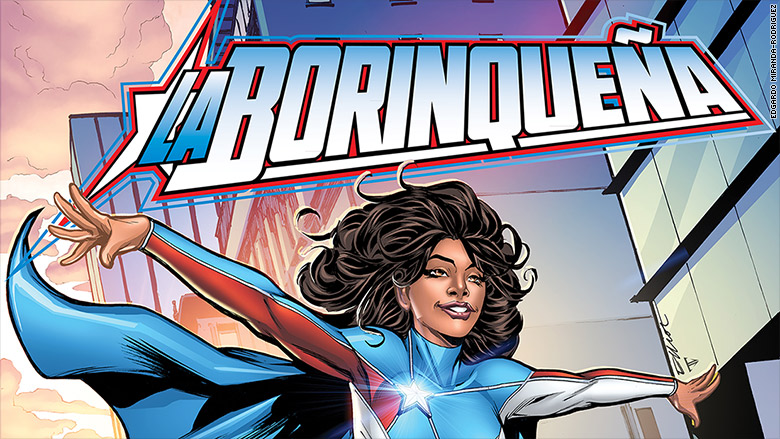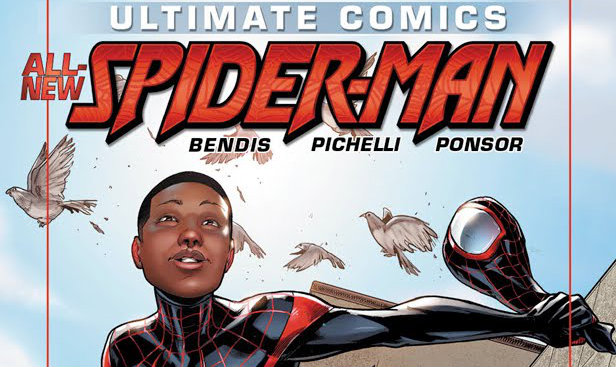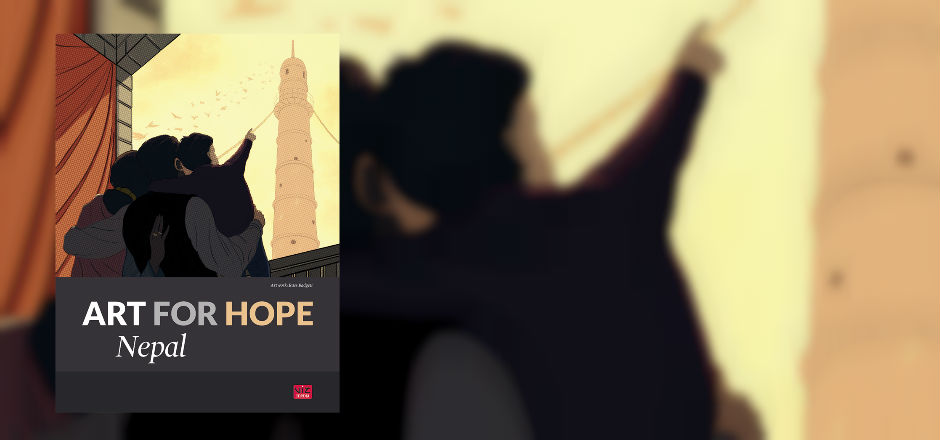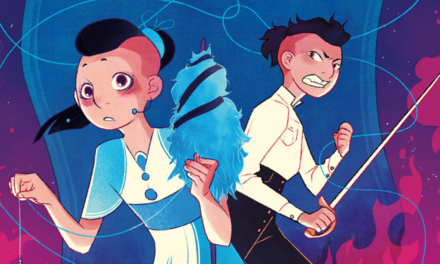I don’t like change. As of writing this article, it’s the first day of the release of iOS 10, and I spent the better part of the afternoon IMing my coworkers and asking them if it was really worth it, because I don’t like change and this was too much to handle. Eventually I caved, downloaded it, and… I’m still getting used to it. Hitting the home button twice to open the phone instead of swiping? Those opaque notifications? There’ll be an adjustment period, for sure.
I don’t think anybody likes change, really – and that goes especially for geek/pop culture fans. If I had a dollar for the number of times I’ve said to a friend “The first season of XYZ show was the best” because the first season had been ‘simpler,’ I could pay for a better PR agent for Doctor Strange director Scott Derrickson.
Comic book fans especially tend to get very touchy when you start to mess with their material, and I’m including myself in that roundup because I remember popping a blood vessel over something as simple as the star on Bucky Barnes’s arm being the wrong color and design during the run of his solo title.
But I can laugh that off because it’s a ridiculous overreaction and I’m fully aware of it. What I can’t laugh off – and what others can’t seem to, either – is clinging so hard to the source material that any attempts to make social or cultural progress in comics are deemed as “PC culture bullshit.”
Once upon a time, comic books were kinda racist. Actually, they were racist, full stop. It’s one thing for Captain America to punch Hitler the face, but it’s another for him to call a crudely drawn Japanese soldier a “yellow monkey.” It’s one thing for Batman to crack down on some bank robbers, but it’s another for him to dropkick a duo of “African pygmies” off a train for acting suspicious. And seriously, check out how disgustingly the Mandarin is depicted. Not to mention, they were sexist too. C’mon, really? Enough already.
So yeah, comics were gross back in the day. They needed a rehaul. They needed to be redone, looked at again, and improved – much as society as a whole needed to be improved. When the world learned it wasn’t cool to call Asians “monkeys” anymore (who’d’ve thought?), pop culture – and comics, specifically – evolved.
That’s pretty basic. Pop culture changes as society does. And make no mistake, society is still changing and improving. We’re not done here. As a result, comics are continuing to make improvements – slow, sluggish, often frustrating but still visible improvements.
With the discussion of representation and diversity being one of the biggest ongoing today in terms of pop culture, it’s not a surprise that comics and their big-and-small screen counterparts are trying to ride that wave by making big changes: a black-Hispanic Spider-Man, a black Captain America, a black and female Iron Man, a Pakistani-American Ms. Marvel, a woman picking up Thor’s hammer. Heroes like Luke Cage and Jessica Jones are getting their own screen time on Netflix. Zendaya will be playing Mary Jane Watson onscreen; Wonder Woman, Black Panther, and Captain Marvel are getting their own movies. Like, a whole movie for each of them.
But of course, the “old school” fans are unhappy with these changes, particularly the ones where once-white characters used to don the same outfits as the new characters of color. It’s politically correct crap. It’s disrespectful to the character. It’s spitting in the face of their legacies.
Because somehow, in some alternate universe somewhere, being a person of color is disrespectful. It’s lesser. It’s inferior. That’s the bare-bones message these fans have been parading around every time this happens.
Guess what? People of color already exist in the millions. They’re all around you. In fact, the United States will no longer have a racial majority. Get your Cold War bunkers ready, white supremacists – we’ve arrived, the end is near, etc.
The point is: the world does not look the way it does in comics. If you look at any cover from either of the two big companies (Marvel and DC, for those not hip to the business), chances are you’ll find a bunch of white people. White dudes, to be precise.
While it’s apparently difficult to accurately chart the demographics of comic books, Graphic Policy did a study in 2014 that took key terms from various Facebook profiles to identify comic fans in an effort to measure the demographic. While not a watertight study, in November 2015 it did reveal that at least 51.2% of comic fans identified as female. Earlier that year in June, both Marvel and DC were examined for their presence of female leads in their titles. DC pulled in at roughly 17% while Marvel squeaked by with 20%.
Simply put? Those numbers are abysmal, especially if we’re to compare them to what the real world looks like (49.1% male and 50.9% female in the U.S. as of 2010, in case you were curious). Don’t even get me started on racial or LGBTQ minorities.
“But comics aren’t meant to represent the real world!” you might argue. “They’re just superheroes, they’re fictional, who cares!”
Of course they represent the real world. No medium exists in a vacuum. Captain America didn’t punch some made-up bad guy on the cover of his first issue – he punched Adolf goddamn Hitler. It’s literal and it’s symbolic. And if women or people of color or members of the LGBTQ community can’t see themselves in a comic or a movie or a TV show unless they squint for 15 minutes, then there’s something wrong with that industry.
So yes, comics are slow to catch up, but they are catching up nonetheless. This isn’t some Great Minority Agenda to ruin all your precious childhood memories – this is a medium struggling, out of breath and sweaty as hell, to catch up.
Times have changed. They’ve been changing since the “yellow monkeys” and “African pygmies” era of our time. Comics will inevitably change with them, and they’ll keep changing whether old school comic fans want them to or not. It’s about time people start accepting that instead of clinging so tightly to antiquated ideas about who comics are “for.” And in some instances, different mediums are already starting to make strides to reflect reality – US cable network FX has taken great strides to diversify the people behind the camera, to the point where “today, less than half the directing slots went to white men at FX, and a whopping 51% belong to women and people of color.”
So, the existence of a black man taking the mantle of Captain America has “ruined” your childhood? A black-Hispanic boy as Spider-Man is keeping you awake at night with night terrors about a world full of – gasp – diversity? You’re sad that you “can’t relate” to Iron Man anymore now that a woman has donned the suit?
Gee. I wonder how that must feel, to open a comic and see someone who doesn’t look like you as the hero. By all means, tell me more. I’m so fascinated.
We need to accept the fact that comics are not and will never be definite. They’re always undergoing a change – sometimes subtle, sometimes radical. If you want to stick with your “old school” comics, you can take your pile of back issues with your “yellow monkeys” and have fun in that cozy nuclear bunker from the Cold War.
The rest of us will be waiting out here.
—
Gabby Taub is the Fantasy Reviewer at Girls in Capes and a graduate of New York University where she studied creative writing and English. She’s currently working on her own horror novel, holding down a regular job, and enjoying the self-assigned title as the Captain America aficionado at GiC.
